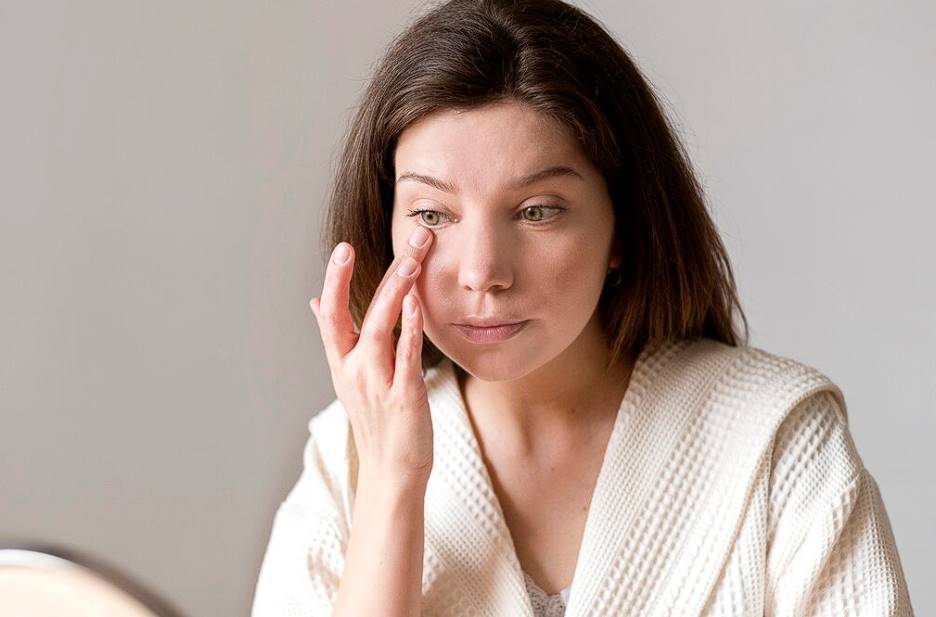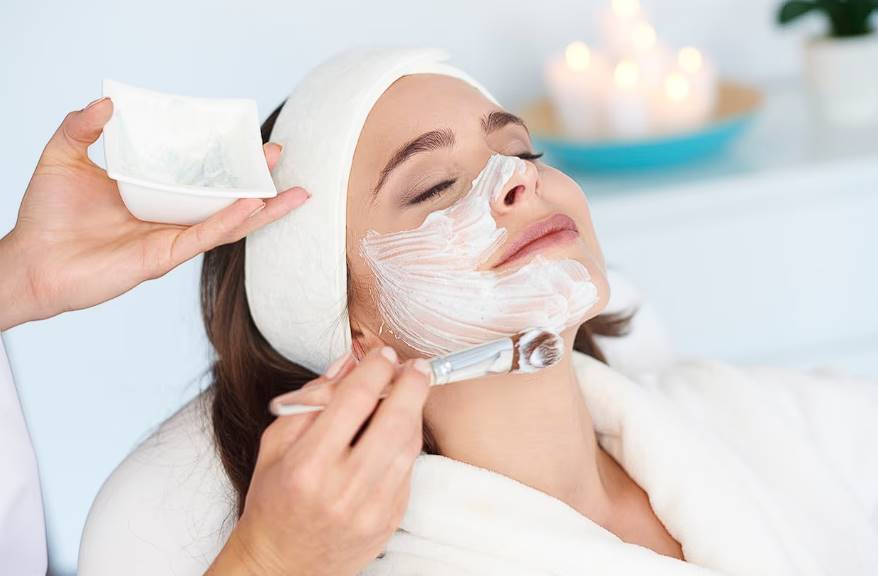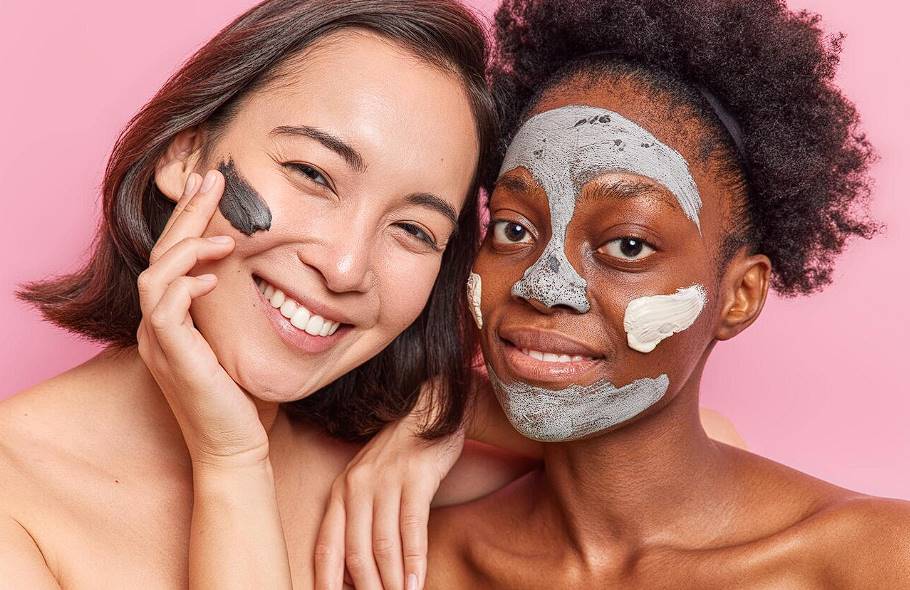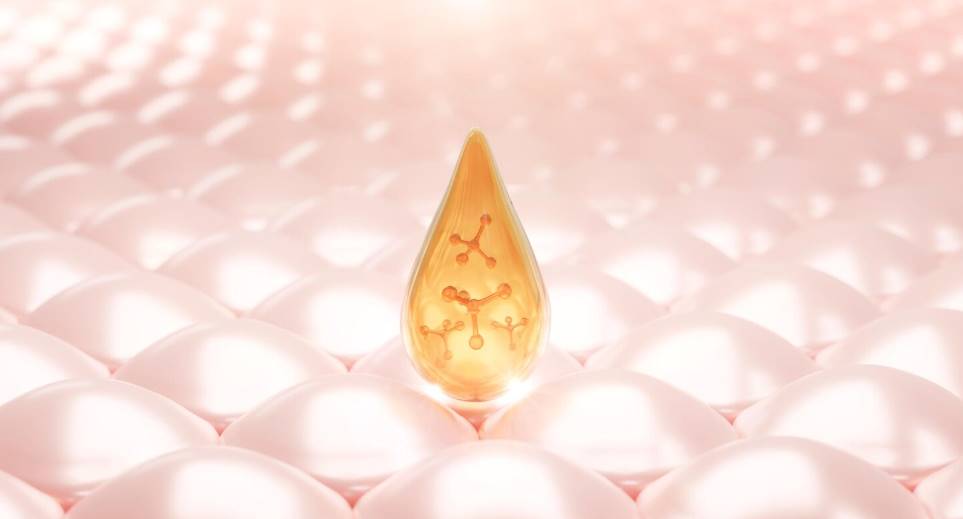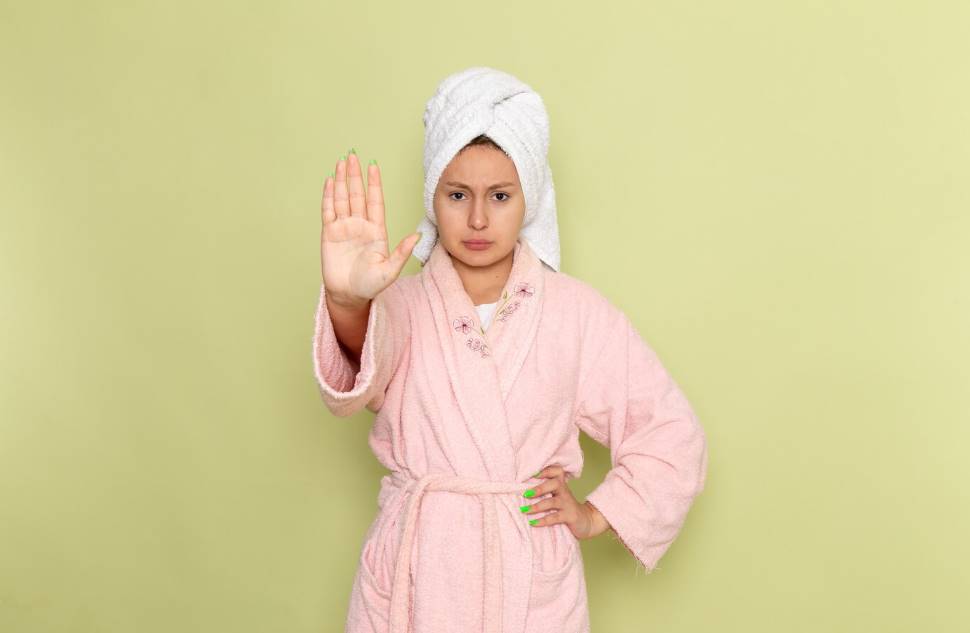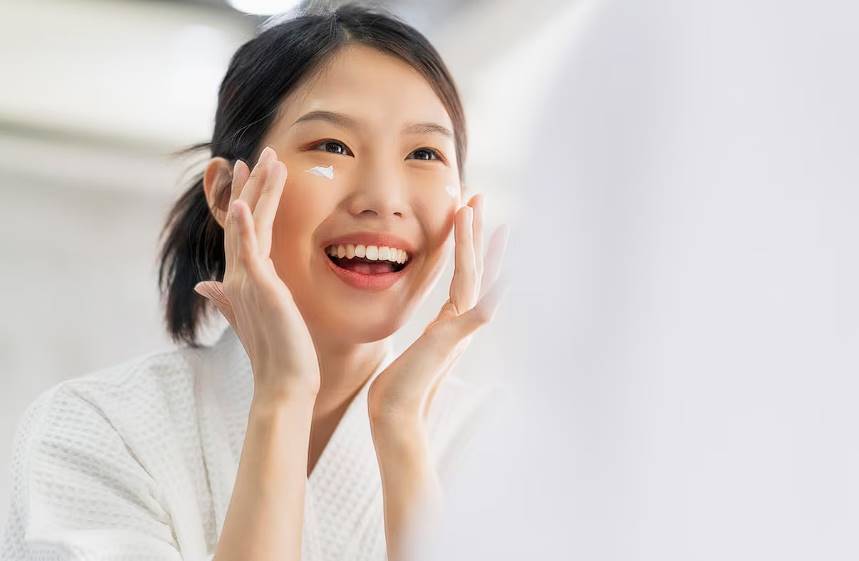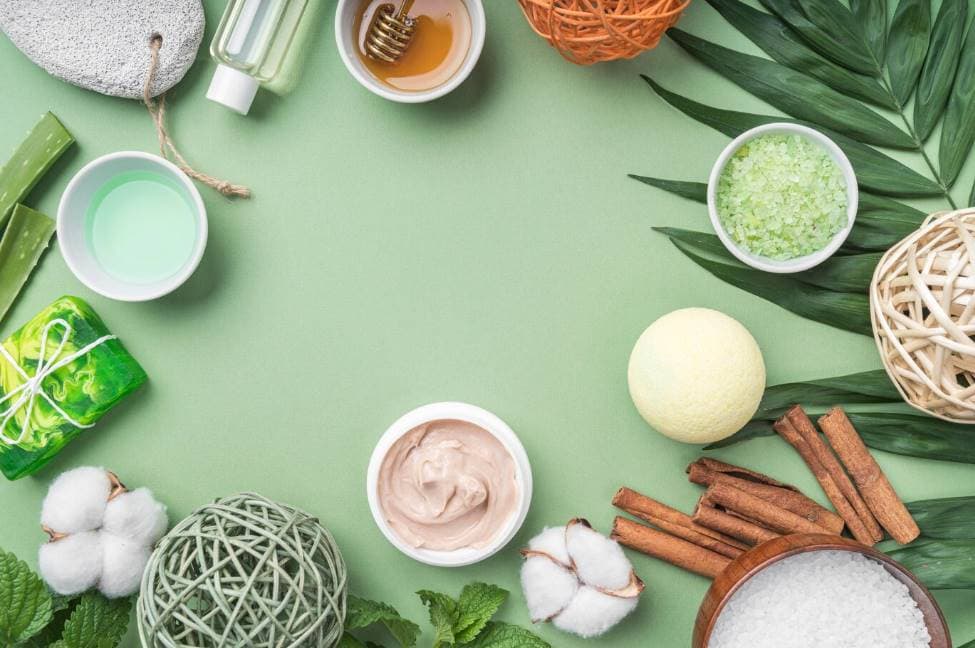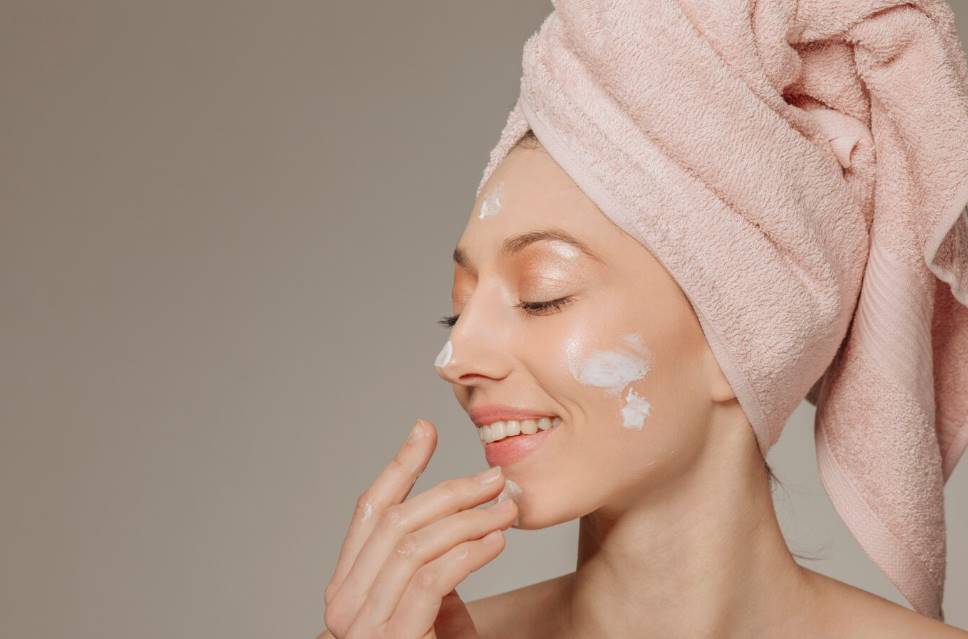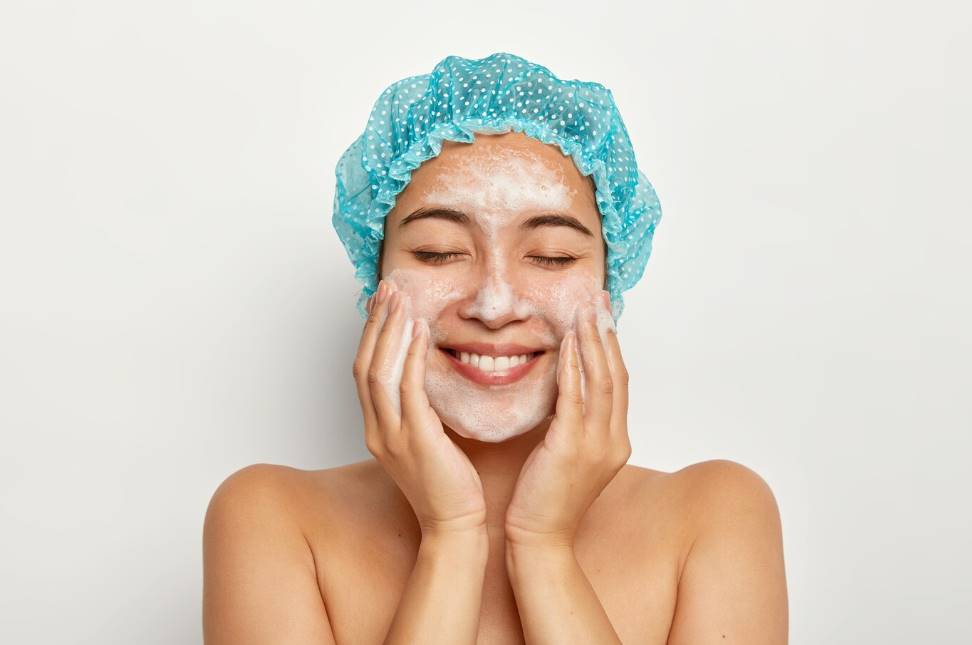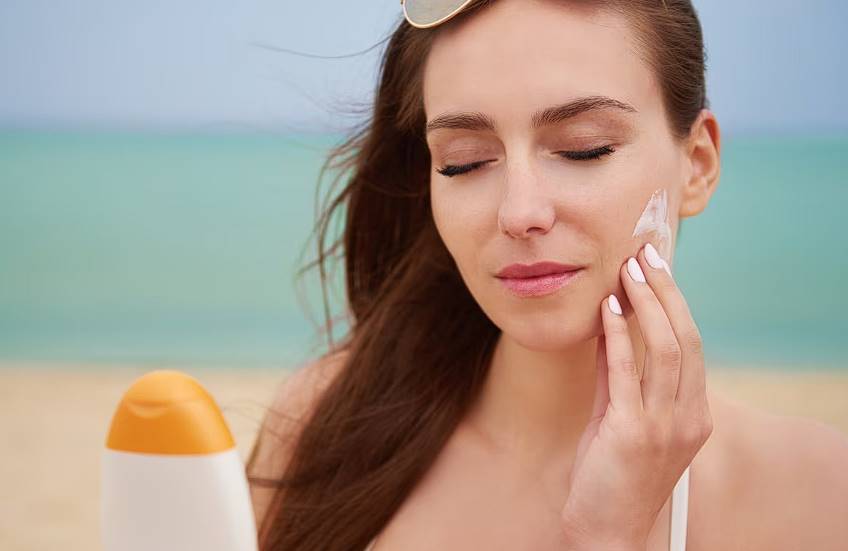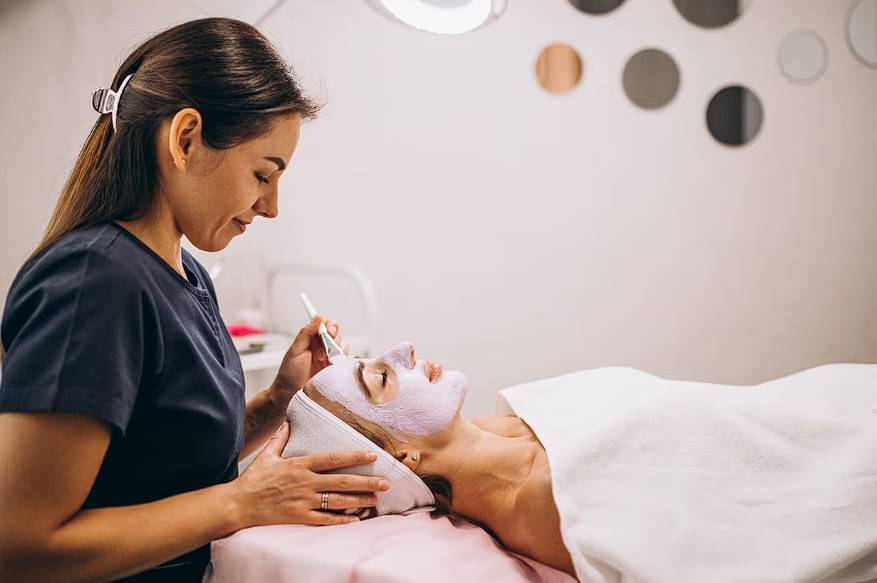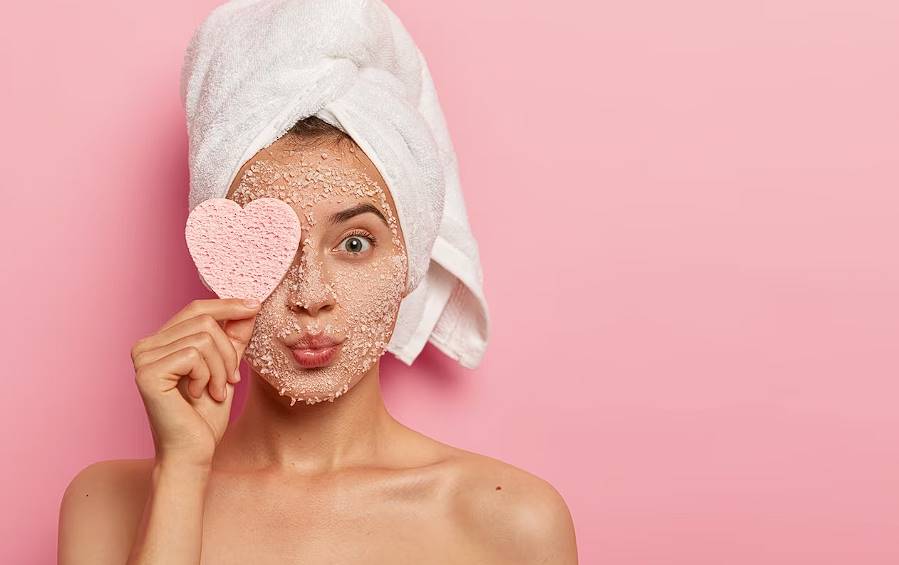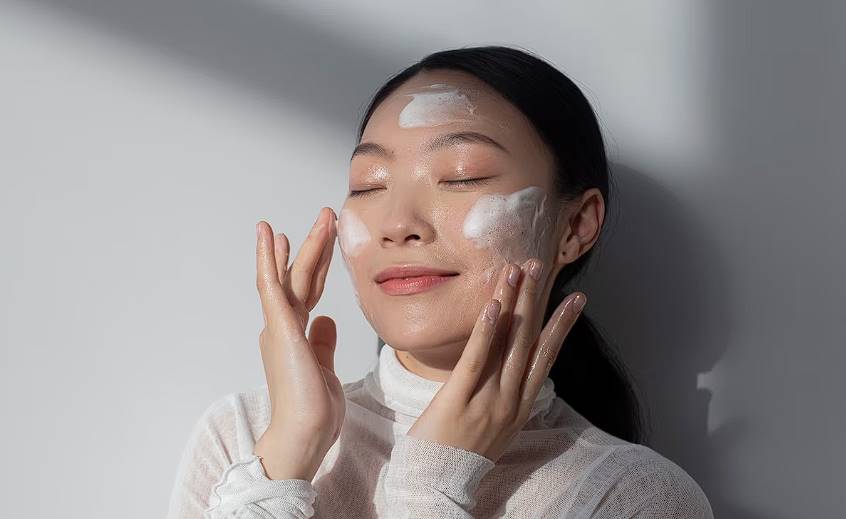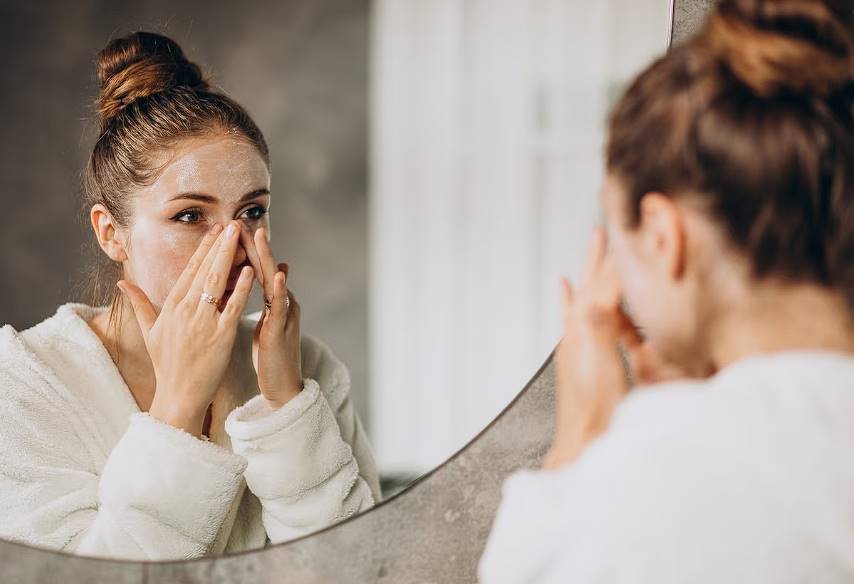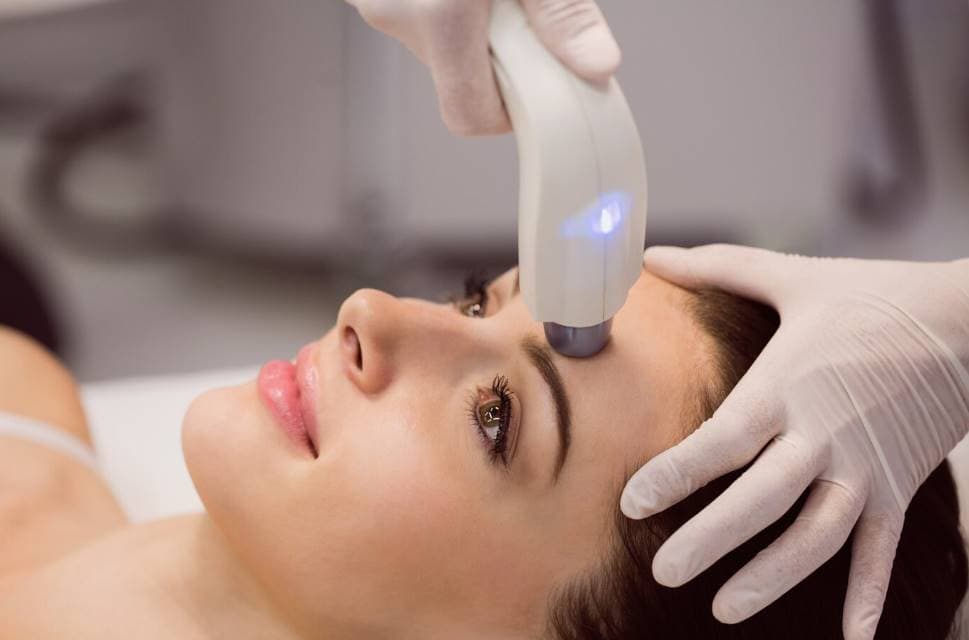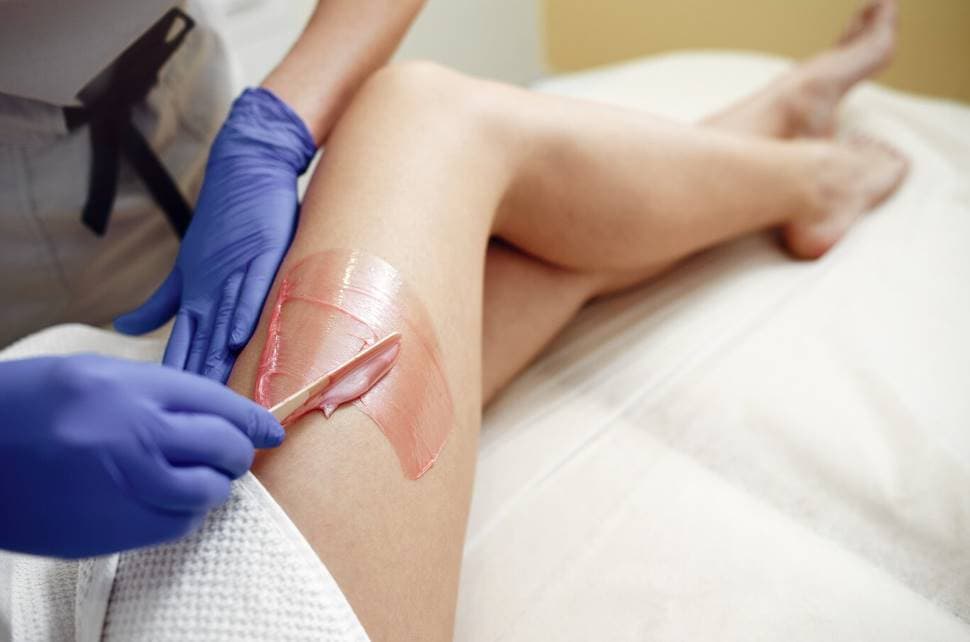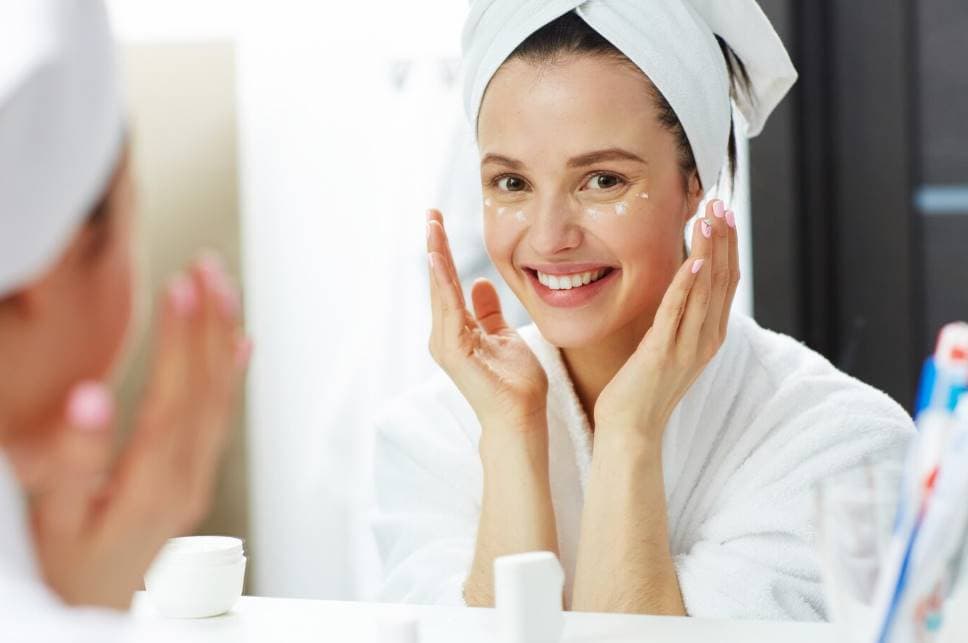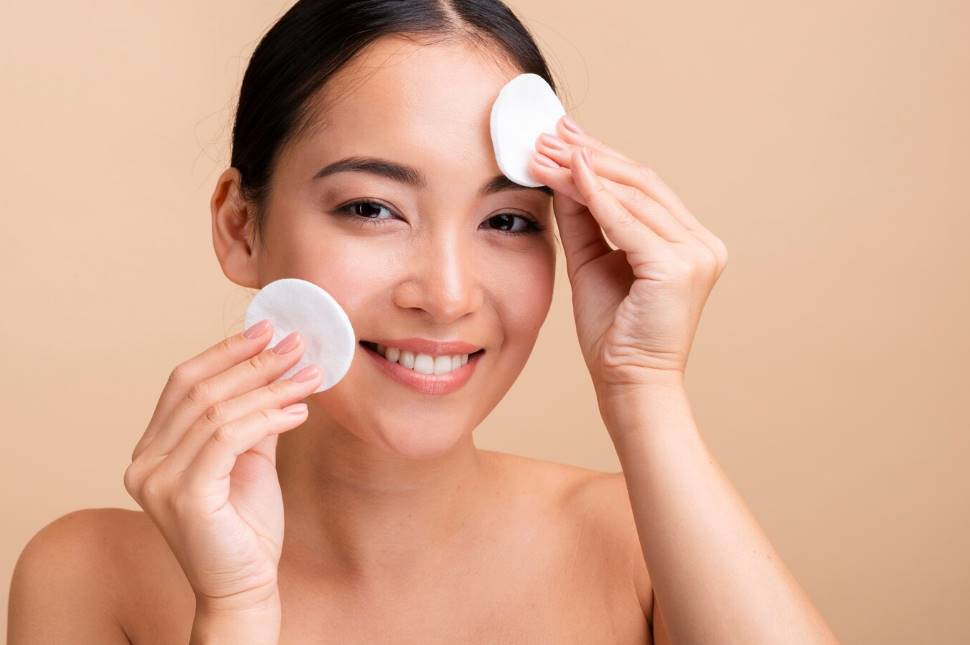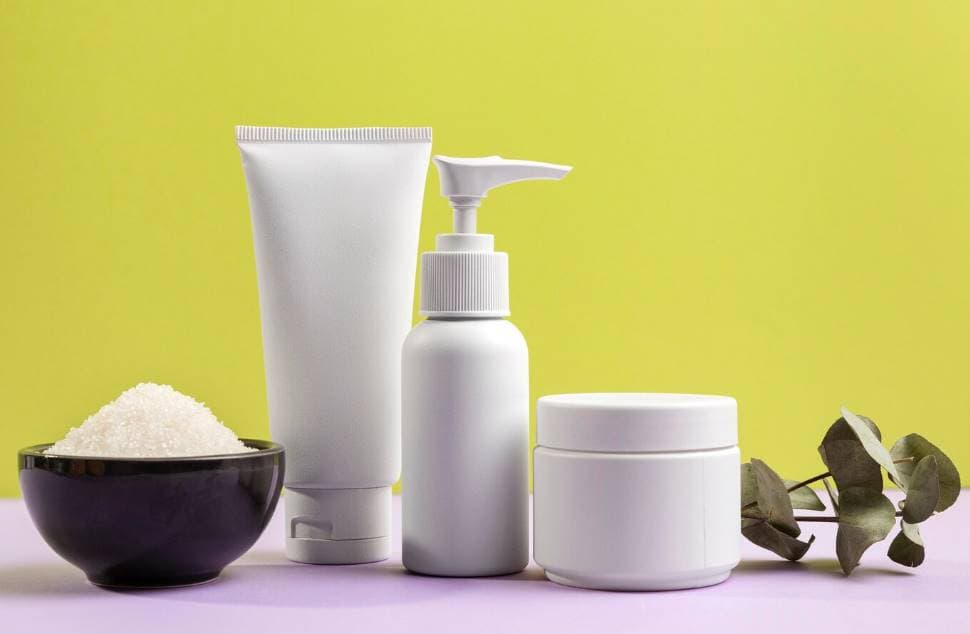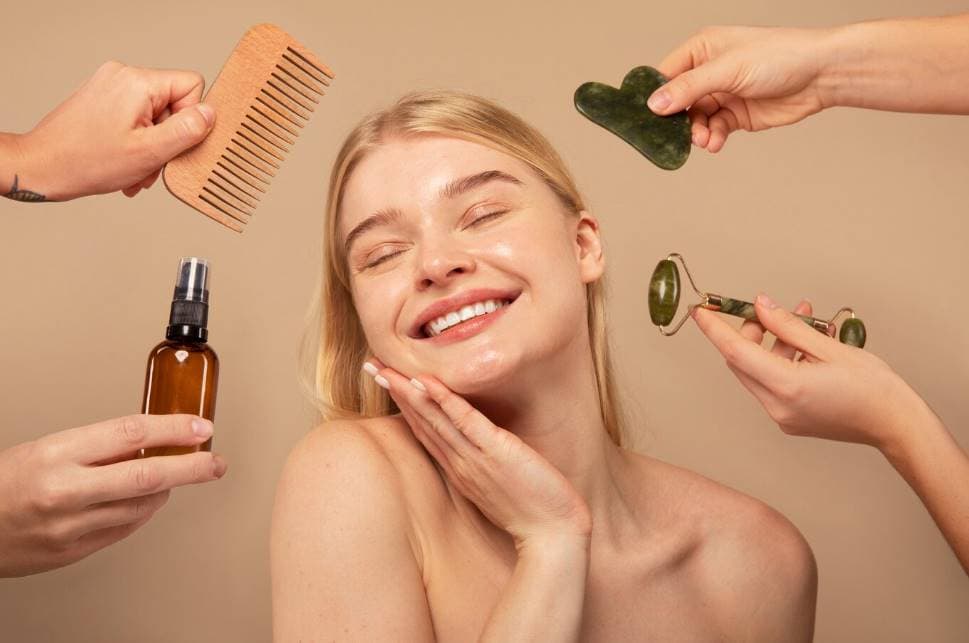No matter what your skin type is, getting it looking and feeling better usually requires a method that is designed specifically for you. Find a happy medium if you have oily skin. Choose a mild, foamy cleanser with salicylic acid or benzoyl peroxide to aid in regulating oil production and forestall acne breakouts.
To prevent your skin from overcompensating by producing additional oil, steer clear of harsh toners that contain alcohol. Instead, pick up a gentle toner with astringent components like witch hazel or tea tree oil, which won't irritate your skin.
Moisturisers that don't clog pores but still provide adequate hydration are your best bet. Spot treatments with benzoyl peroxide or tea tree oil can be very helpful for pimples on oily skin.
Hydration and nourishment are paramount for dry skin. To begin, use a gentle and nourishing cleanser so that your skin's natural oils are not stripped away. Then, use a toner that locks in moisture, such one that contains glycerine or hyaluronic acid. You should choose an emollient moisturiser with richer components like shea butter or ceramides.
Hydrating serums are highly recommended for dry skin since they provide instant and long-lasting hydration. In dry locations or during the winter, utilising a humidifier in your room can also bring moisture to the air, which is beneficial to your skin.
Products that are mild and fragrance-free are ideal for sensitive skin. Find skin care products that are hypoallergenic, fragrance-free, and developed for sensitive skin.
Camomile, aloe vera, and calendula are just a few of the ingredients that have been shown to have a relaxing effect on the skin. Over-stimulation of delicate skin can cause unwanted reactions, thus exfoliating too often should be avoided.
Instead, use a gentle, non-abrasive scrub once or twice weekly for exfoliation. To prevent further irritation, pat your skin dry after cleansing, and always perform a patch test before fully committing to a new product.
Keep in mind that even on gloomy days, the sun's rays can penetrate through, so it's important to always wear sunscreen to protect your skin. Improve your skin's condition and reveal its natural glow with regular, individualised care that targets your skin's specific demands.
What Ingredients Should Acne Prone Skin Avoid?
Getting rid of products that include substances that can irritate the skin is the first step in treating acne. Acne is largely caused by stress, hormones, the environment, and one's diet.
However, some of the comedogenic substances found in skincare products are often overlooked despite their potential to block pores and exacerbate acne. Therefore, keep in mind and avoid the following components:
Alcohol
Since dry skin causes the sebaceous glands to produce more oil, using rubbing alcohol to treat your acne may make it worse. Acne can result from the buildup of dead skin cells in your pores. Pimple outbreaks stand out more because of the accompanying redness, peeling, and flaking.
Coconut Oil
Coconut oil has antibacterial and moisturising effects but is also very comedogenic, so it may not be the best choice for treating acne. It's not a good idea for people with oily skin to put it on their faces because it can block their pores.
Perfumes
Many over-the-counter moisturisers, toners, and scrubs also include fragrances and perfumes. In addition to having hazardous hormonal effects, fragrances can irritate the skin. Redness and irritation could result if you have sensitive, acne-prone skin.
Isopropyl Myristate
An emollient that aids in the penetration of other cosmetic ingredients. Despite its primary purpose of facilitating the absorption of topical treatments, it has the potential to block pores, leading to breakouts and other skin issues.
Silicones
It's made from silica, and it leaves the skin feeling silky smooth. Blackheads and acne can be prompted by the layer it creates in the skin, which traps debris, sebum, and other pollutants.
Mineral Oil
Although it has a barrier effect on skin and clogs pores, it does a great job of locking in moisture to treat dry, irritated skin and gives goods a luscious, silky feel.
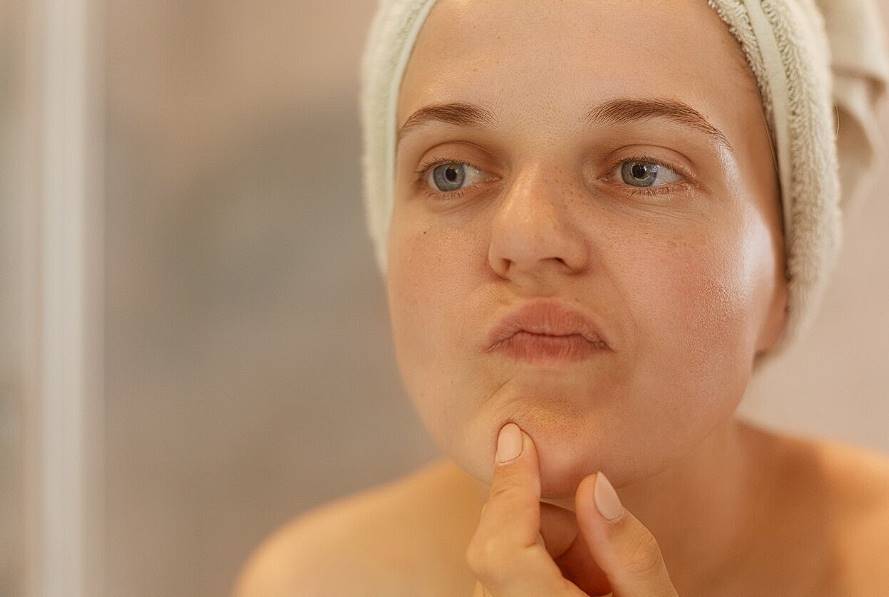
The Difference Between Oily Skin And Sensitive Skin
You've certainly heard a number of phrases, such as "normal," "dry," "oily," and "sensitive," used to characterise various forms of facial skin. A normal skin pH is slightly acidic, and its oil and moisture levels are just appropriate.
Oily skin, as the name suggests, has an excess of oil because the oil glands create more oil than the skin actually requires, whereas dry skin lacks moisture and oils.
Skin care products containing known skin irritants, such as fragrances, perfumes, soap, alcohol, parabens, etc., can cause irritation in those with sensitive skin. Symptoms include stinging, itching, and rashes.
The face is often the only body area where sensitivity is an issue. Although dry skin is more likely to be sensitive, oily and acne-prone skin types can also be sensitive.
Normal and dry skin care routines will differ from an oily skin care routine. It's highly likely that you have oily skin if you're suffering with acne; 87% of people who suffer from acne also say they have oily skin.
Products that reduce oil production and unclog pores are therefore highly sought after. Acne-prone skin that is also sensitive requires treatment with treatments that are both effective and mild on the skin.
5 Ways To Hydrate Oily, Acne-Prone Skin Without Causing Breakouts
Do you have clogged pores and occasional or frequent breakouts, but acne treatments are too harsh to dry out your skin? Then, when you try to apply a thicker moisturiser to keep your skin hydrated, you discover that doing so actually makes the bumps and blemishes worse?
My clients, especially those in their twenties, thirties, and even forties, frequently complain to me about this problem. These individuals still struggle to establish a routine that meets all of their skin's needs, and as a result, they continue to have breakout activity.
Avoid Using a Harsh, Acne-Focused Cleanser
In order to get rid of acne, many cleansers (although not all) employ harsh chemicals and detergents. Even if you just experience a few minor breakouts at a time (between 1 and 5), you should think about how your acne cleanser impacts your entire face. If you over-dry your face, dead skin cells accumulate and trap oil and bacteria, causing more bumps and breakouts.
Instead of using a harsh cleanser formulated for acne, a cleanser without sulphates is recommended. It's good to hear this because sulphate surfactant components like sodium lauryl (or laureth) sulphate and ammonium lauryl (or laureth) sulphate can cause the skin's surface to dry out.
An effective but gentle gel cleanser with acne-fighting ingredients like salicylic acid is desirable. I suggest you check out these sulfate-free cleansers.
Second, learn to read your skin. If a sulfate-free cleanser still leaves your skin feeling dry, you should opt for something a little gentler. Importantly, wait no longer than 60 seconds between each step of the cleaning process and the application of a new solution. Even with a gentle cleanser, your skin will feel tight if you go without covering it for more than a minute.
Washing your face is an essential aspect of any skincare routine. When you use a harsh cleanser that dries out and irritates your skin, the remainder of your routine (the toner, serum, and moisturiser) has to compensate for the damage. Keep in mind that there is a difference between the approach taken to treat active blemishes with an infection and the method taken to treat red, dark spots that arise after an outbreak has occurred. Instead of using an acne cleaner, which can dry up the skin and make acne scars and dark patches more prominent, exfoliation should be the main focus.
Use an Alcohol-Free Toner After Cleansing to Give Your Skin a Boost of Hydration
Users of noise-cancelling headphones are often misunderstood. Toning is often overlooked but is essential for all skin types (especially oily/combination and dry) in the skincare process.
Using a toner after cleansing is beneficial for many reasons, including the fact that it aids in rehydrating the skin. Clogged pores and pimples persist because oil is still being produced deep within your skin. However, toners are an excellent source of the water it requires.
After using a toner that doesn't include alcohol to clean your skin, apply a serum. Doing so keeps your skin cells hydrated and looking healthy and supple even after you've used the toner. Don't neglect this step; skin cells are like fish and need water to survive.
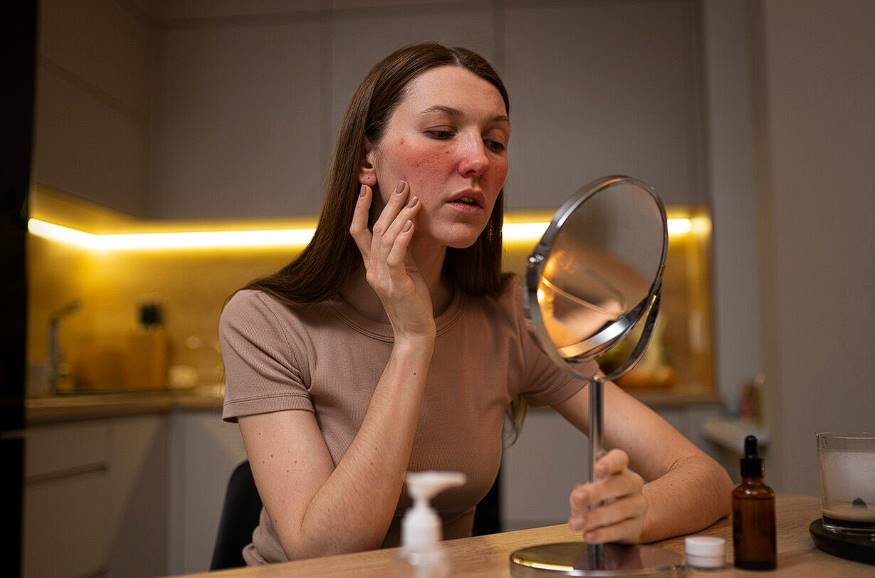
Give Your Skin a Mini Facial Using a Hydrating Gel Mask
One of the greatest ways to rapidly hydrate oily skin is by applying a mask following a two-step exfoliation. Dead skin cells on the surface can be removed by exfoliating the skin first. After all, there's no point in trying to reanimate cells that are already packing their belongings and getting ready to depart.
The gentle acid peel works best if left on for the full 10 minutes. Always flush it away with a lot of water. Apply a gel mask over your entire face. Gel masks, despite their lack of oil, can be soothing to the skin due to their warmth.
Gel masks are also designed to deliver moisture to the skin's deepest layers. You won't have any more breakouts after using this, and your skin will feel soft and silky.
Use a Treatment Oil to Protect the Skin When Flying on an Airplane or When in Any Dry Climate
You can rest assured that I am able to read your mind. Even though I had my doubts, here I am applying oil to my acne-prone skin. No way!" You must understand that not all oils have the same pore-blocking properties. They provide a protective layer that blocks moisture loss, allowing your skin to retain its suppleness and comfort.
Even a small amount of skin oil applied on top of a proper moisturiser (perhaps an oil-free one) can act as a sealant to keep moisture from escaping the skin (through osmosis) in dry environments. Due to the intense dryness and tightness of the air within the cabin, it is strongly advised that an oil be used prior to boarding a trip.
Always Use Products For Your Skin Type
You're obviously someone who cares about learning about and implementing the most cutting-edge skincare practises, but you don't have to accomplish this on your own.
If you want to know what your skin really needs, it's best to talk to someone who works with it every day. Refrain from making these blunders if you want to know your skin type. Too many of my customers have mistakenly identified their skin type when I've been able to tell them otherwise.
It may be a surprise that I didn't include "drink a lot of water" on my recommendations for hydrating oily, acne-prone skin. While it's true that water is essential, ingesting it isn't the best method for keeping skin supple. Find out more about this right here.
I'll close with this. Be careful not to overdo it with the skincare products, as doing so might cause your pores to become clogged, resulting in acne and pimples. Consider alternatives that contain oil-controlling and breakout-preventing chemicals.
Conclusion
To improve oily, dry, sensitive, and acne-prone skin, it is essential to find a suitable treatment method. For oily skin, use a gentle cleanser with salicylic acid or benzoyl peroxide to regulate oil production and prevent acne breakouts.
Avoid harsh toners containing alcohol and opt for gentle toners with astringent components like witch hazel or tea tree oil. Moisturisers that provide adequate hydration are best for oily skin.
For dry skin, use a gentle cleanser, a toner that locks in moisture, and hydrating serums. Hydrating serums are recommended for dry skin, and humidifiers can bring moisture to the air.
For sensitive skin, mild, fragrance-free products like camomile, aloe vera, and calendula are ideal. Exfoliation should be avoided too often, and patch tests should be performed before using new products.
To avoid irritants in skincare products, avoid alcohol, coconut oil, perfumes, isopropyl myristate, silica, and mineral oil. Oily skin has an excess of oil due to oil glands producing more oil than the skin actually requires, while dry skin lacks moisture and oils. Skin care products containing known skin irritants, such as fragrances, perfumes, soap, alcohol, and parabens, can cause irritation in those with sensitive skin.
Normal and dry skin care routines differ from oily skin care routines. Oily skin is highly likely to be affected by acne, and treatments that reduce oil production and unclog pores are highly sought after.
To hydrate oily, acne-prone skin without causing breakouts, avoid using harsh, acne-focused cleansers that dry out the skin. Instead, opt for a gentle gel cleanser with acne-fighting ingredients like salicylic acid.
Wait no longer than 60 seconds between each step of the cleaning process and the application of a new solution. Wash your face regularly to compensate for the damage caused by harsh cleansers.
Use an alcohol-free toner after cleansing to give your skin a boost of hydration. Toning is essential for all skin types, especially oily/combination and dry. After using a toner, apply a serum to keep your skin cells hydrated and looking healthy. Give your skin a mini facial using a hydrating gel mask, which removes dead skin cells on the surface and delivers moisture to the deepest layers.
Use a treatment oil to protect the skin when flying on an airplane or in any dry climate. It's best to talk to someone who works with your skin every day to know what your skin needs.
Drinking water is essential, but overdoing it may cause pores to become clogged, leading to acne and pimples. Consider alternatives with oil-controlling and breakout-preventing chemicals.
In summary, hydrating oily, acne-prone skin requires careful consideration of the cleanser, exfoliation, and using products tailored to your skin type. Avoid overdoing skincare products and consider alternatives with oil-controlling and breakout-preventing chemicals.
Content Summary
- Addressing different skin types requires tailored methods.
- Oily skin benefits from a foamy cleanser containing salicylic acid or benzoyl peroxide.
- Harsh toners with alcohol can exacerbate oil production.
- Gentle toners with witch hazel or tea tree oil are recommended for oily skin.
- Non-comedogenic moisturisers are optimal for oily skin types.
- Benzoyl peroxide or tea tree oil spot treatments can combat pimples on oily skin.
- For dry skin, maintaining hydration and nourishment is crucial.
- Gentle cleansers ensure dry skin's natural oils remain intact.
- Toners with glycerine or hyaluronic acid help lock in moisture for dry skin.
- Emollient moisturisers with shea butter or ceramides are ideal for dry skin.
- Hydrating serums offer instant and sustained moisture for dry skin.
- Using a humidifier can provide skin benefits, especially in dry conditions.
- Sensitive skin benefits from hypoallergenic and fragrance-free products.
- Ingredients like camomile, aloe vera, and calendula can soothe sensitive skin.
- Exfoliating sensitive skin excessively can be harmful.
- Always patch test new products to avoid skin irritation.
- Sunscreen should be worn daily to protect against UV rays.
- Acne can be influenced by stress, hormones, diet, and the environment.
- Certain skincare ingredients can block pores and worsen acne.
- Alcohol can exacerbate acne by promoting excess oil production.
- Coconut oil, despite its benefits, can block pores, especially in oily skin.
- Fragrances in skincare products can lead to redness and irritation.
- Isopropyl Myristate can cause breakouts by blocking pores.
- Silicones create a skin barrier, trapping debris and causing acne.
- Mineral oil can clog pores but also aids in moisture retention.
- Skin types include normal, dry, oily, and sensitive.
- Sensitive skin can react to irritants like fragrances, alcohol, and parabens.
- Even oily or acne-prone skin can be sensitive.
- Acne-prone, sensitive skin requires treatments that are effective yet gentle.
- Harsh acne-focused cleansers can dry out the skin, leading to more breakouts.
- Sulphate-free cleansers are recommended for their gentleness.
- Over-drying the skin can lead to accumulated dead skin cells and more breakouts.
- Using an alcohol-free toner after cleansing can rehydrate the skin.
- Skin cells need hydration to look healthy and supple.
- Exfoliating before applying a hydrating gel mask can enhance hydration.
- Gel masks can moisturise deeply without causing breakouts.
- Not all oils block pores; some can be beneficial for retaining moisture.
- Using an oil before a flight can combat the dry cabin air.
- Using products tailored for your specific skin type is crucial.
- Many individuals misidentify their skin type, leading to incorrect product use.
- Drinking water is essential, but topical hydration is also crucial for skin health.
- Overusing skincare products can lead to clogged pores and breakouts.
- Products with oil-controlling and breakout-preventing ingredients are advisable.
- Regular, tailored skin care can reveal the skin's natural glow.
- Acne is not only caused by skincare products but also internal and external factors.
- Ingredients in skincare can either soothe or irritate, depending on skin type.
- To prevent further irritation, sensitive skin should be patted dry after cleansing.
- Excessive exfoliation can be harmful, especially for sensitive skin.
- Oily skin is characterised by excessive oil production from oil glands.
- 87% of people with acne claim to have oily skin.
Frequently Asked Questions
To improve oily skin, use a gentle, foaming cleanser twice daily to remove excess oil without over-drying. Use oil-free and non-comedogenic moisturisers. Incorporate products containing salicylic acid or benzoyl peroxide to control acne. Blotting papers can help manage excess shine during the day without disrupting makeup.
To improve dry skin, opt for a mild, hydrating cleanser and avoid hot showers that can strip natural oils. Apply a rich, fragrance-free moisturiser immediately after bathing to lock in moisture. Use products containing hyaluronic acid, glycerine, or shea butter to boost hydration. Humidifiers can also add moisture to the indoor air, benefiting dry skin.
For sensitive skin, choose hypoallergenic and fragrance-free products to minimise irritation. Use a gentle, creamy cleanser and lukewarm water to cleanse the face. Patch-test new products to check for reactions. Look for skincare products containing soothing ingredients like aloe vera, camomile, or calendula. Sunscreen with physical blockers like zinc oxide can protect sensitive skin without irritating it.
Use a gentle cleanser containing salicylic acid or benzoyl peroxide for acne-prone skin to unclog pores. Non-comedogenic moisturisers can provide hydration without exacerbating acne. Regular exfoliation with mild glycolic or lactic acid can help prevent dead skin cell buildup. Avoid touching your face, keep hair off, and change pillowcases frequently to reduce bacterial exposure.
A balanced diet rich in fruits, vegetables, whole grains, and lean proteins can benefit skin health. Drink plenty of water to stay hydrated. Avoid excessive caffeine and alcohol consumption. Manage stress through relaxation techniques like yoga or meditation, as stress can exacerbate various skin concerns. Adequate sleep also plays a vital role in skin repair and overall health.
